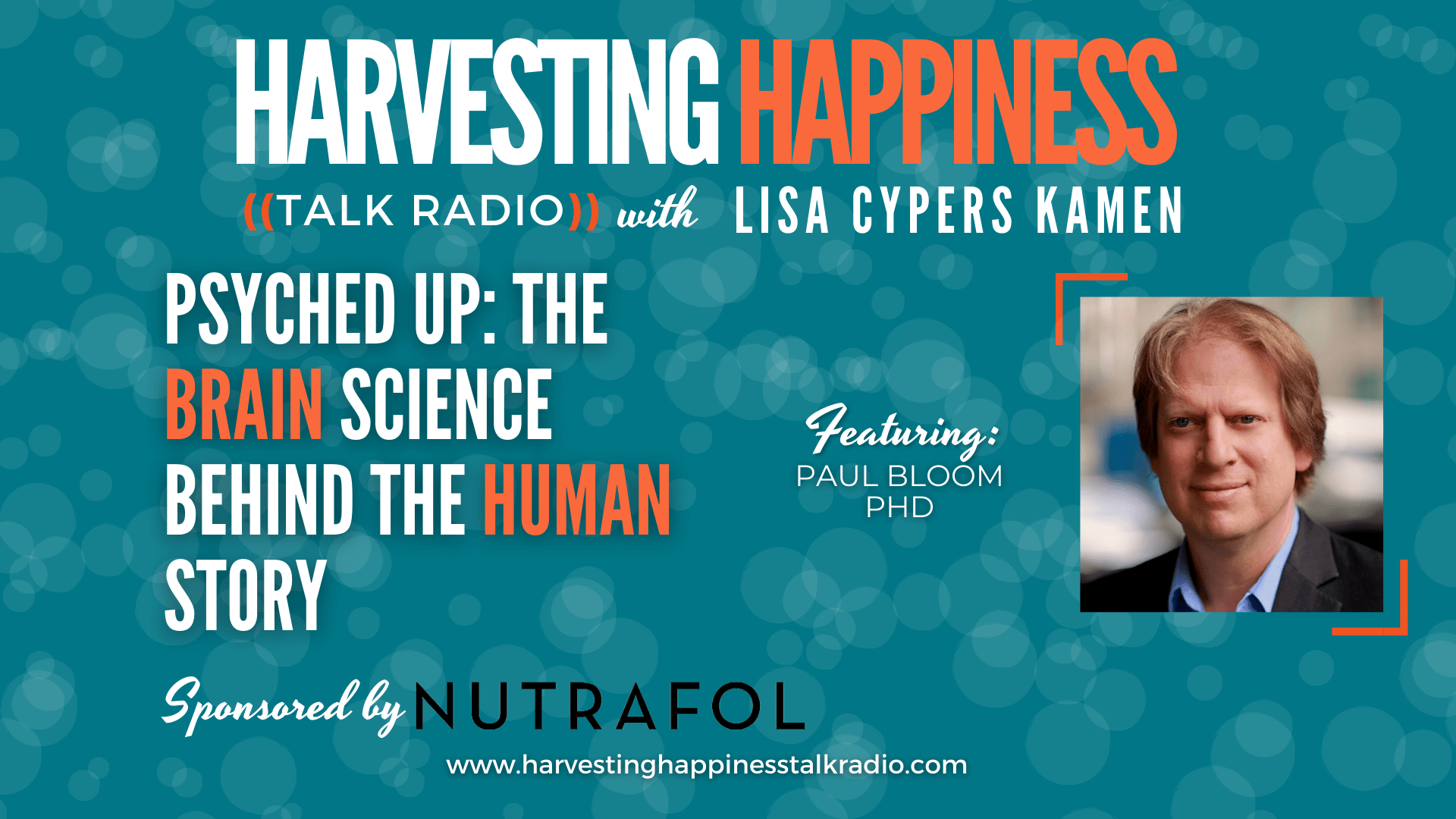
A sense of belonging is essential to human existence. Our ancestors needed to be part of a social group to be safe and provided for. Our need for acceptance still drives us. As an example, being ostracized in today’s ‘cancel’ culture has been referred to as a type of death. To better understand how the human mind has evolved to deal with the pressures of 24-hour access to social media and more, Positive Psychology Podcast Host Lisa Cypers Kamen speaks with the Professor of Psychology at the University of Toronto, Paul Bloom. Paul shares the key concepts from his latest book, PSYCH: The Story of the Human Mind, and provides answers about how social interactions, or the lack of them, might stave off human happiness.
This episode of Harvesting Happiness Talk Radio is sponsored by:
Nutrafol — Millions of Americans experience thinning hair. Nutrafol is physician-recommended hair care made with 100% medical-grade ingredients. Achieve hair growth naturally. Take the hair wellness quiz at Nutrafol.com to discover your unique formula. Then use promo code Happiness to save $15 off your first month's subscription. This offer is available to US customers with free shipping on every order.
Paul Bloom PhD — Brain Science:
- Paul explains the difference between the mental mind and the brain. [2:06]
- Paul contends that evolution hasn’t changed our minds. [7:39]
- How has the human stress response evolved to cope with the constant social threats we experience today? [9:19]
- Social interaction is the key to keeping people healthy, happy, and free of mental illness. [17:29]
- Pandemics and political polarization are unique curses because they take away the social interactions we need to be healthy. [19:43]
- In his book, PSYCH: The Story of the Human Mind, Paul studies every aspect of psychology from children to seniors. [25:08]
















